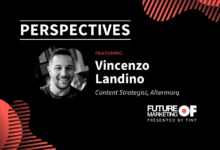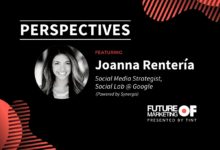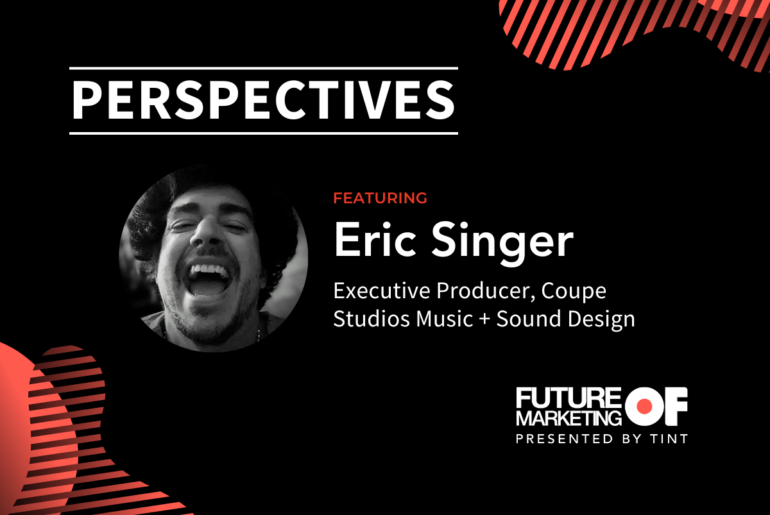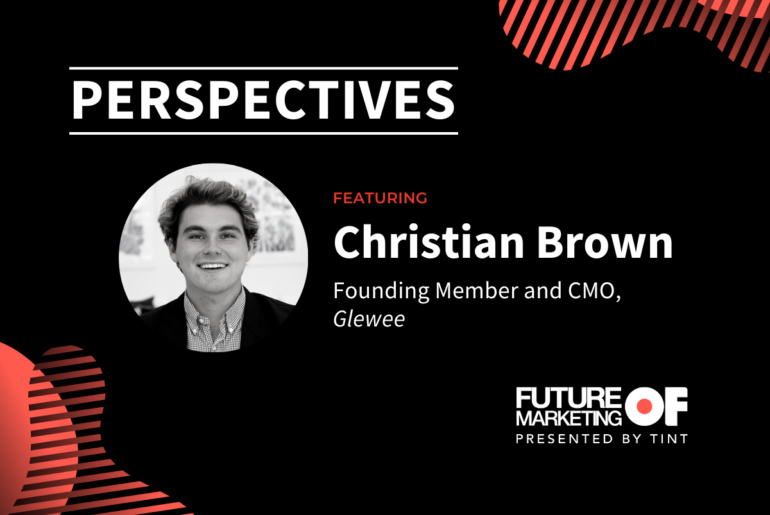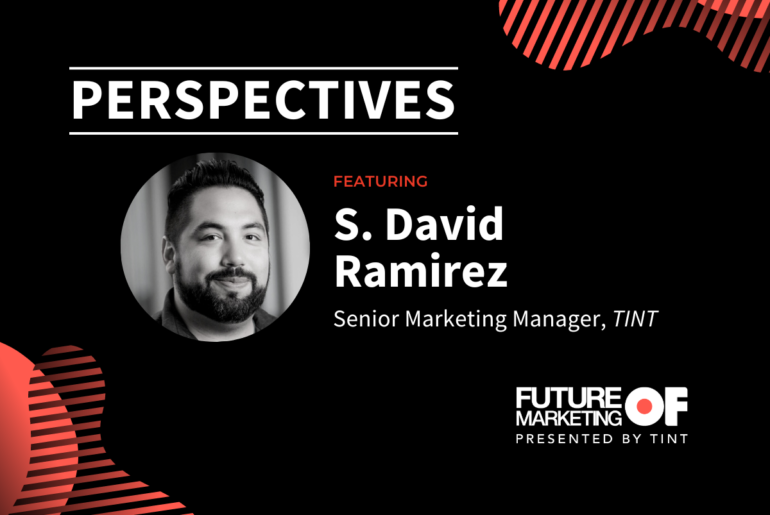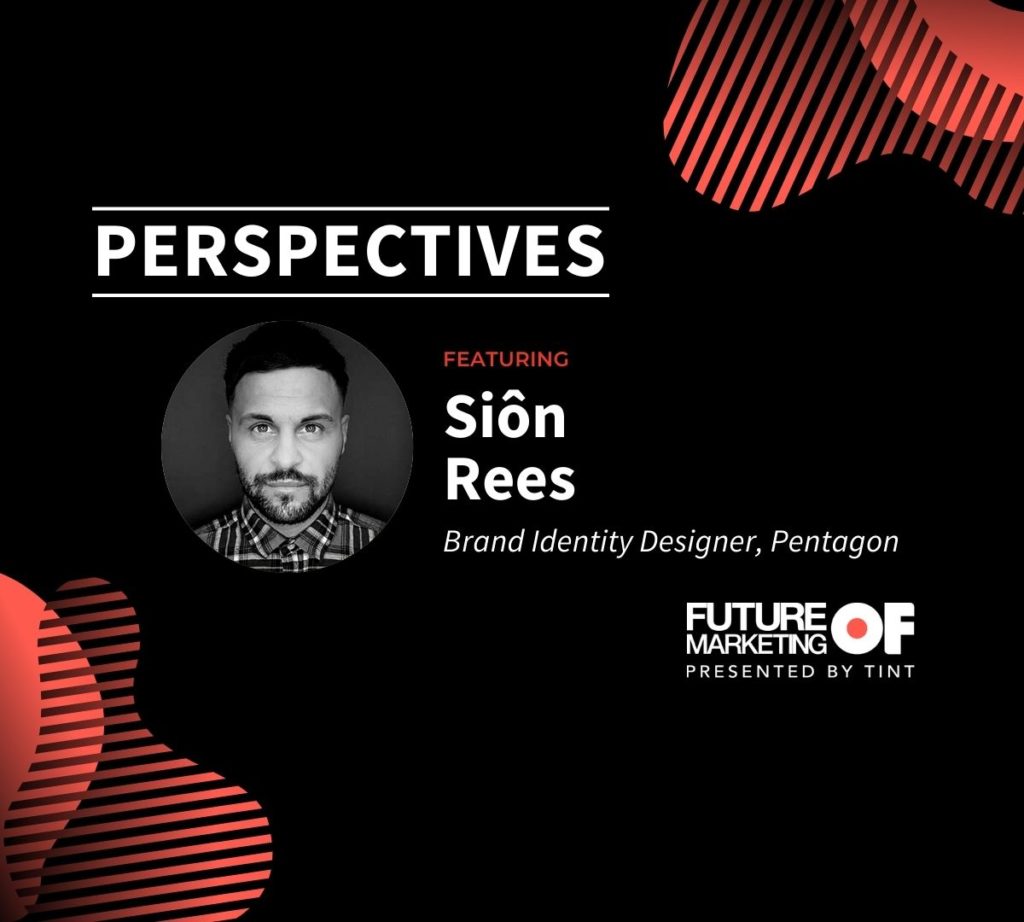
Perspectives is a series uncovering routines, inspiration, and insights by global brand leaders shaping the future of marketing.
EDITOR’S NOTE: Siôn Rees (pronounced Sean) is a brand identity designer for Pentagon, a Welsh design agency in South Wales. Siôn shares his perspective on the following:
• Living a balanced and creative life…
• Empathizing to connect with people…
• Less is more…
And more…
Describe your routine. What do you do for a living? What does your typical day look like?
I work for a design agency in South Wales. We work with a wide selection of corporate companies on a global scale. Our work is diverse and used throughout various business sectors.
The areas of design I typically concentrate on include brand identity, website design, and digital content creation. Working with start-ups is also fun, as these are the projects where you can really plant the seeds that will grow the future roots of a brand.
Outside of my career, I’m an international level martial artist (however, age is against me in that field).
I try and start my day with some form of exercise, whether it’s weights or boxing. I, then, have a 60-minute commute to the design studio.
The commute is the perfect opportunity to catch up with audiobooks and podcasts. I’m currently really enjoying Seth Godin’s Akimbo, however, I’m partial to The Joe Rogan Experience and slightly more silly/light-hearted podcasts like The Fighter & The Kid and Bad Friends.
Once I get into work, it’s all systems go.
With a wide variation of clients, different projects always take different time-frames. Project durations fluctuate from daily to weekly, which keeps things interesting.
How do you wind down from a long day of work?
Living in South Wales means I’m very fortunate to have some of Europe’s most outstanding areas of beauty right on my doorstep, such as The Gower Peninsula.
There’s nothing I like more than to visit these areas with my dog Zen. These moments are filled with clarity and inspiration. They’re often extremely underrated – just like the ideas you have while showering.
During times where the weather isn’t as nice, I like to play one of the ‘Chilled’ playlists on Spotify and sit in my living room, listening to the music, and watching my goldfish swim around their tank.
That’s a really good way to unwind.
I’m a big believer in the benefits of meditation, but I also feel it can be approached and practiced in different ways. For me, watching my fish is one of them.
What is a book, podcast, person, or event that helped shape your career – and why?
The person is my dad. He’s a graphic designer and is the man that started me on my design journey. His experience and insights are extremely valuable. My dad and his university friends are all creatives in different fields.
I’ve been very fortunate to be surrounded by people within the industry from a very young age. It was very inspirational growing up.
Books and podcasts are something I also take a lot of inspiration from but not in a necessarily traditional manner. There are so many to choose from for different reasons but off the top of my head, some eclectic ones are:
- Way of the Peaceful Warrior by Dan Millman
- The Hacienda: How Not to Run a Club by Peter Hook
- The Story of the Streets by Mike Skinner
- Complicated Apes by Bryan Callen
- The Philosophy in an Hour Series by Paul Strathern
- Akimbo by Seth Godin
The list goes on.
What is something interesting or surprising you learned in the last few months?
I was quite surprised to find out that the DIN typeface was originally designed in 1931.
I’ve always been a fan of this typeface, and I’ve seen it as quite a futuristic and technical font – but I didn’t expect it to be as old as it is.
As they say, good design is timeless.
Who or what do you look to for inspiration?
I’m truly passionate about art and design.
I’m inspired by everything that surrounds me. Opening credits on a tv show or film. The structure of a building or house. A successful combination of photography and typography from within a magazine spread. Cleverly designed websites/apps for generic things (like banks). Interior design… Design Museums. Art galleries. Art of all mediums, in general – I love it all.
It would be fair to call it an obsession.
Even though the above provides me with a constant feed of inspiration, the one place I get my ideas from on a completely consistent basis is the shower.
If ever I feel like I’m running a blank or I need a refresh, the shower is where I will achieve the successful thinking I’m looking for.
What do you feel most marketers struggle with?
Understanding how important culture and empathy is.
Many marketers concentrate on ‘marketing techniques’ they think work, purely on the basis that ‘it’s what everyone else is doing’.
Understanding how culture constantly influences your environment is important. Marketers should study this before making any progression on strategies they plan on implementing.
If more marketers took the time to understand that people connect with people – and their contribution to culture will take them further – their outcomes would be completely different.
What advice do you have for marketers and creatives who look up to you?
In a nutshell: Stay inspired, stay creative, stay consistent, work hard, be nice, avoid having a style – and never forget that less is more.
What are you excited about or looking forward to?
In general – I’m going to Australia next year.
I meant to go in October, but due to the pandemic, the trip was postponed until next year. I haven’t been before so I think it will be a great trip, and a nice place to take some snaps on my camera.
Other than that, I’m looking forward to my new approach to work. The pandemic provided me with an opportunity to think differently about my approach to work and my career.
I’m excited to see the future progress of what I’m working on.
Final question… What does the future of marketing look like to you?
The future of marketing will only truly change for the people who work, study, and continue to learn from the industry’s evolution.
I believe the current culture will hinder progress; whereas, the people who adapt, change, and contribute will advance.
If you enjoyed reading this interview, subscribe to Future of Marketing.
